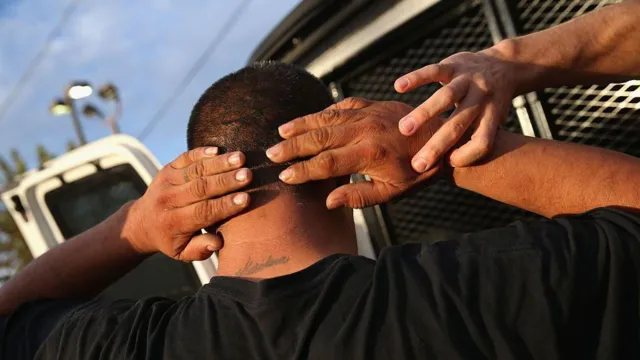Gabriela entered the United States more than two decades ago, gasping for breath under a pile of corn stalks in the boot of a smuggler’s car.
Now a housekeeper in Maryland, the Bolivian national is one of at least 13 million undocumented migrants living in the US – an umbrella term that includes those who entered the US illegally, overstayed their visas or have protected status to avoid deportation.
Across the US, migrants like Gabriela are grappling with what the incoming Trump administration’s vow to conduct mass deportations could mean for their future.
In over a dozen interviews, undocumented immigrants said it was a topic of heated discussion in their communities, WhatsApp groups and social media.
Some, like Gabriela, believe it won’t impact them at all.
“I’m not scared at all, actually,” she said. “That’s for criminals to worry about. I pay taxes, and I work.”
“In any case, I’m undocumented,” she added. “[So] how would they even know about me?”
In an election campaign where immigration loomed large as a major concern of US voters, Trump frequently pledged to deport migrants en masse from US soil from his first day in office if he were to return to the presidency.
But nearly two weeks after his sweeping election win, it remains unclear what exactly these immigration enforcement operations will look like.
The president-elect has insisted cost won’t be an issue, but experts have cautioned that his promises may run into enormous financial and logistics challenges.
His newly appointed “border tsar”, Tom Homan, has said that undocumented migrants deemed to be national security or public safety threats will be a priority. And he has suggested the workplace raids – a practice ended by the Biden administration – could return.
Speaking to Fox News on Saturday, the former acting director of Immigrations and Customs Enforcement during Trump’s first term challenged the notion that “those who enforce the law are the bad guys and those who break the law are the victims”.
“What member of Congress, what governor or what mayor is against taking public safety threats out of their community?” he asked, adding that the new administration would “follow through on the mandate that American people gave President Trump”.
US authorities deporting migrants is nothing new. More than 1.5 million people have been expelled under President Joe Biden, in addition to millions swiftly turned away from the border during the Covid-19 pandemic.
During the eight-year administration of Barack Obama – whom some dubbed the “deporter-in-chief” – about three million people were deported, with a focus on single men from Mexico that could easily be deported from border regions.
Trump’s promised plans, however, are more wide-ranging and aggressive, including enforcement operations in the US far from the border. Officials are reportedly also mulling using the National Guard and military aircraft to detain and ultimately deport people.
JD Vance, Trump’s running mate and incoming vice-president, has said that the deportations could “start” with one million people.
Still, some undocumented migrants believe that they will benefit from a Trump presidency instead of being kicked out.
“A lot of Latinos, those who can vote, did so because they think he [Trump] can improve the economy. That would be very good for us too,” said Carlos, an undocumented Mexican who lives in New York City. His son is a US citizen.
According to the American Immigration Council – a non-partisan organisation that conducts research and advocates for an overhaul of the US immigration system – there are more than five million Americans who were born to undocumented parents and have the security of US citizenship.
Carlos says he is “a little” worried about getting swept up in immigration raids. But that fear is tempered by the possibility of an improved economy under Trump and more work.
“Things may be a bit tense right in our communities right now, but being worried isn’t a solution,” he said. “The best thing to do is avoid problems and not commit any crimes.”





